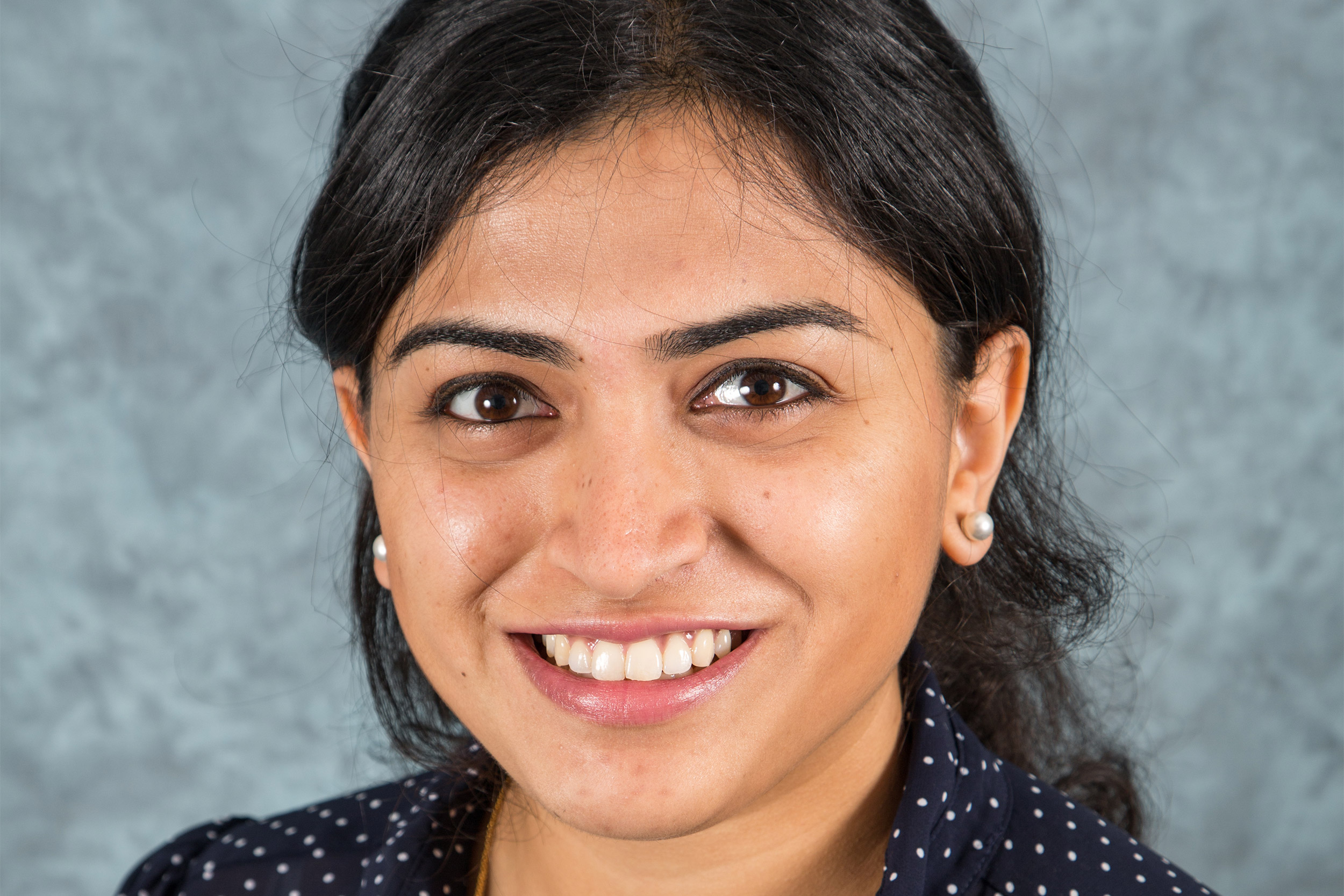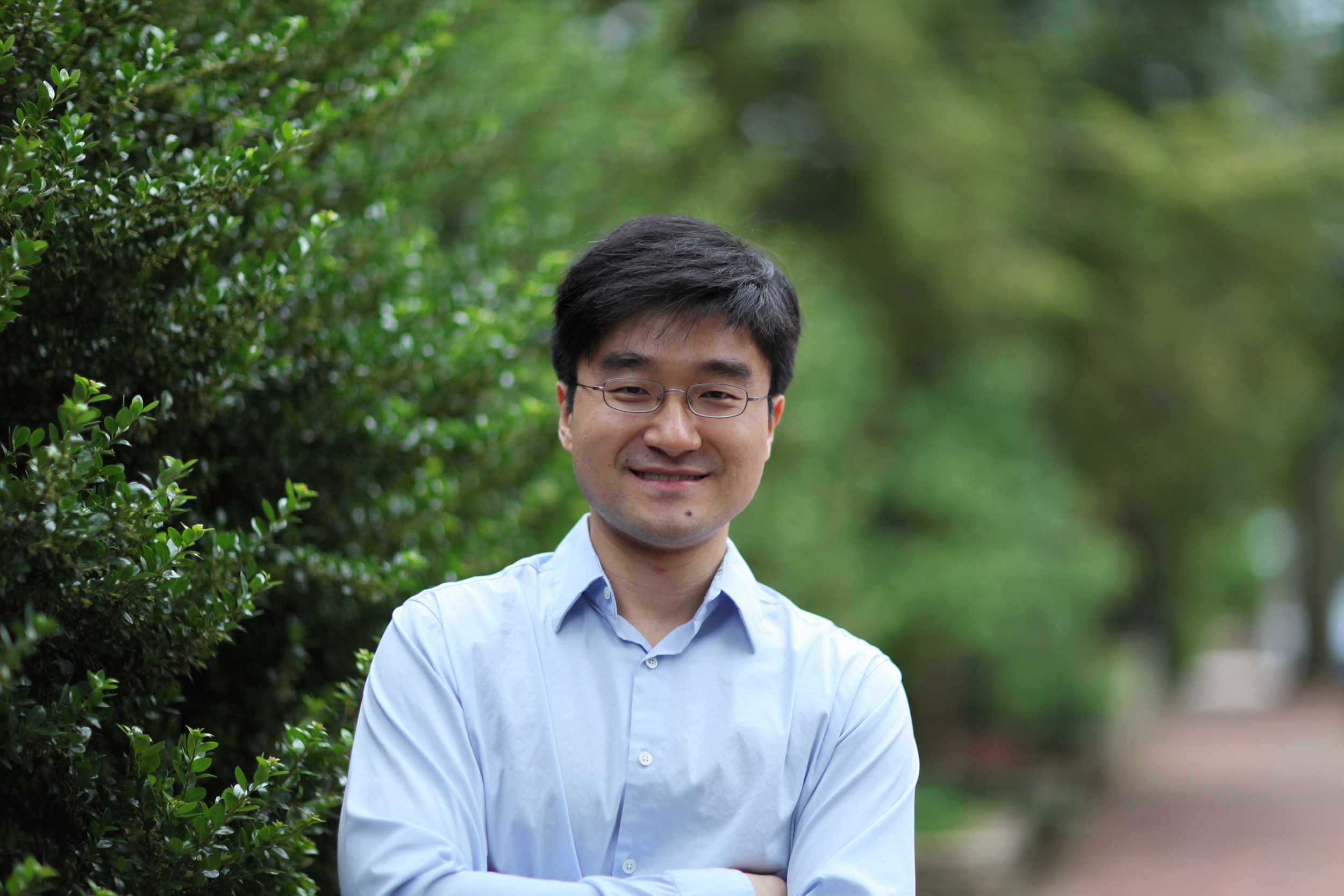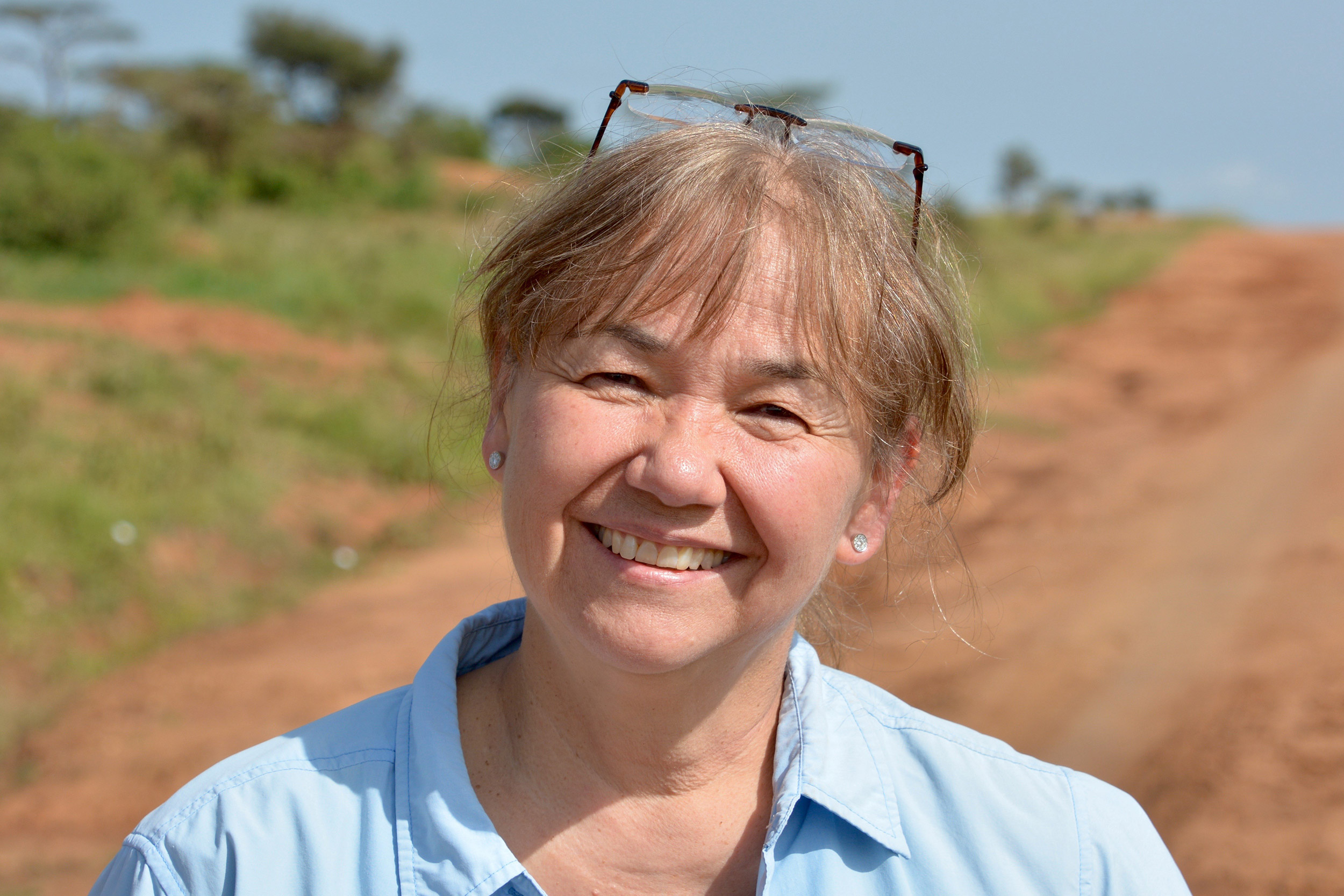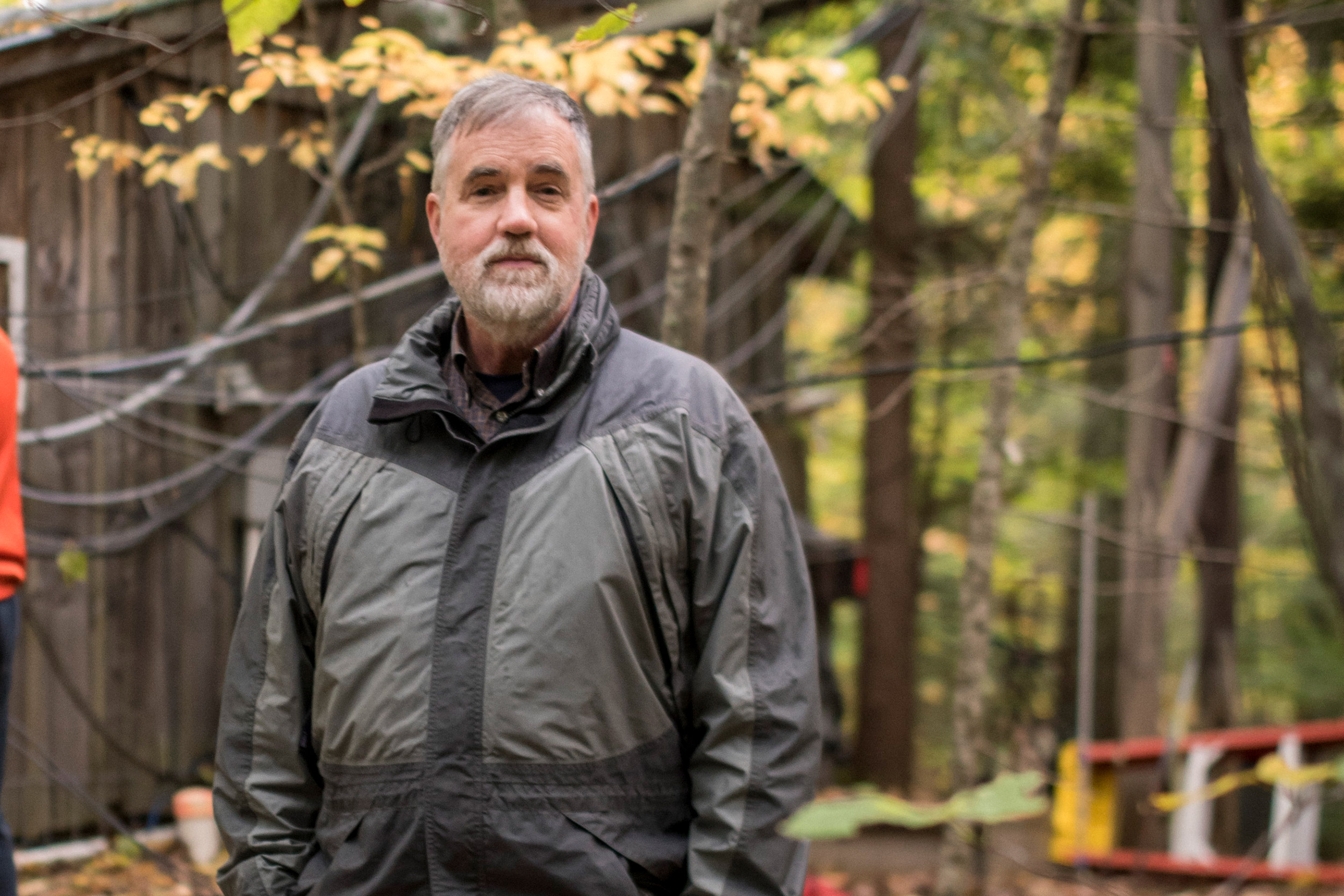
Rose Lincoln/Harvard Staff Photographer
New ideas for global warming solutions win $1M in funding
Climate Change Solutions Fund awards recognize nine projects around the world
Harvard faculty and students are training their interests and expertise on what is literally the world’s hottest hot-button issue: global warming. As a result, nine research teams will share $1 million in the seventh round of the Climate Change Solutions Fund (CCSF) awards for proposals that create critical knowledge, propel novel ideas, and lead toward solutions that can be applied at Harvard and across the globe.
“Pursuing a more sustainable future means advancing on several fronts to address the tremendous challenges posed by climate change,” Harvard President Larry Bacow said. “The projects being funded this year draw on strengths from across the University and among a wide swath of researchers and scholars. I look forward to seeing where their efforts lead us in the years ahead.”
Vice Provost for Research Richard McCullough, whose office administers the fund, said, “The variety of research in which our faculty and students engage — projects in government, engineering, chemistry, biology, landscape architecture, and more — reflects Harvard’s strong commitment to addressing the full scope of impacts from climate change. With support from the University and generosity from alumni and others, CCSF is able to fund projects that are paramount to solving global climate and health challenges.”
The fund was established in 2014 by President Emerita Drew Faust to support and speed up Harvard’s transition from nonrenewable to sustainable sources.
This year’s projects range from studying the implications of geographic and administrative boundaries on groundwater extraction in India, to identifying sources of methane in China, to examining natural structures with useful properties at Harvard’s Museum of Comparative Zoology.
The fund review committee selects research projects each year from the University’s 12 Schools, giving special consideration to those that use the campus as a living laboratory to study global sustainability challenges that align with the priorities in the Harvard’s Sustainability Plan and the climate goals defined by the Presidential Committee on Sustainability and the Office for Sustainability. As of 2021, nearly 60 CCSF projects have received more than $7 million. The fund is supported by the President’s office and donations from alumni and others.
This year’s winning projects are summarized below. Applications for next year’s awards will open in July 2021. Interested applicants should contact vpr_grants@harvard.edu.

A Study of the Implications of Geographic and Administrative Boundaries on Groundwater Extraction in India
Shweta Bhogale, Ph.D. Candidate, Public Policy, Graduate School of Arts and Sciences
Agriculture’s increased dependence on groundwater at a time of worsening agroclimatic conditions is bringing the planet closer to a major water crisis, with potentially enormous consequences for both food production and the livelihoods of rural populations — a majority of the workforce in many developing countries. This project will study the effects of competition for groundwater and irrigation practices, crop choices, agricultural livelihoods, and long-term water levels in India. The project leaders hypothesize that water sources that are shared between districts see greater levels of water extraction, and aim to provide evidence for the effectiveness of different institutional and policy mechanisms that dampen adverse effects of competition for water. In particular, they are interested in whether governance of groundwater resources in their entirety, instead of as segmented units, could lead to more sustainable extraction practices.

Designing a Solid-State Battery Device for Ultrahigh Performance Electric Vehicle Applications
Xin Li, Associate Professor of Materials Science, Harvard John A. Paulson School of Engineering and Applied Sciences
After developing a solid-state battery with ultra-long cycling and ultra-high current density, with the
potential for high-performance electric vehicle applications, Li hopes to demonstrate that the same design principle can work just as efficiently in a more practical, pouch-cell prototype. This larger format will further demonstrate the innovative battery design and provide critical data that will impact future research and industrial applications. The ultimate goal is to design a battery that outperforms internal combustion engines so electrical vehicles accelerate the transition from fossil-fuel-based energy to renewable energy.


Kaitlyn Loftus (left) and Robin Wordsworth.
A Back-to-Basics Approach to Improve Precipitation Physics in Global Climate Models
Kaitlyn Loftus, Ph.D. Candidate in Earth and Planetary Sciences, Graduate School of Arts and Sciences, with co-investigator Robin Wordsworth, Associate Professor of Environmental Science and Engineering, Harvard John A. Paulson School of Engineering and Applied Sciences
In the model worlds used to predict and prepare for climate change, it is almost always lightly drizzling — unlike on the real Earth. The most complex climate models cannot even reproduce observed precipitation characteristics accurately, let alone robustly predict future characteristics. This failure is significant, because precipitation is directly associated with high-risk impacts such as floods, droughts, and lower regional crop yields, and indirectly associated with uncertainties in future temperature change. This project proposes a novel approach to representing precipitation in climate models by building a model that better reproduces present-day precipitation.

Exploring Ion Mobility in Metastable Oxide Thin Films for Energy Applications
Johanna Nordlander, Postdoctoral Fellow, Department of Physics, Faculty of Arts and Sciences
Advancements in clean, sustainable energy technology are critical to mitigating increasing global power usage. A promising technology with a variety of potential applications for green electricity are solid oxide fuel cells (SOFCs), which have superior conversion efficiency and pollution-free exhaust. To promote this technology, new oxide material classes that allow oxygen transport closer to room temperature are needed. This project hopes to use state-of-the-art thin-film synthesis techniques to engineer oxides that will let the team construct lower-temperature conductors.

Prospecting for Functional Materials in the Entomology Collections of the Museum of Comparative Zoology
Naomi Pierce, Sidney A. and John H. Hessel Professor of Biology, Department of Organismic and Evolutionary Biology, Faculty of Arts and Sciences; Curator of Lepidoptera in the Museum of Comparative Zoology; Senior Fellow of the Society of Fellows
The ability to predict, prevent, or alleviate impacts of climate change is becoming increasingly critical as extreme weather events grow more frequent. Biomimetic design focuses on examining natural structures with useful properties, such as butterfly-wing scales, to develop new materials. Exploring natural features that have evolved over millions of years provides insight into their chemical and structural variation. This project will utilize a previously developed imaging platform with the extensive collections in Harvard’s Museum of Comparative Zoology to model nanostructures producing various features, and use that data to train a new AI algorithm to predict microscopic features from structural, color, and pattern properties. This data can then be applied to specific purposes, such as reducing ultraviolet and infrared ray absorption or increasing the efficiency of cells used in solar panels. A more comprehensive understanding of natural structures will promote development of new biologically inspired materials that can reduce reliance on fossil fuels and ultimately mitigate the effects of climate change.


Martha Schwartz (left) and Edith Katz.
Linear Urban Forest
Martha Schwartz, Professor in Practice of Landscape Architecture, Harvard Graduate School of Design, with co-investigator Edith Katz, Teaching Associate, Harvard Graduate School of Design
The effects of global warming are being felt widely, especially in cities, and the urban heat island effect is projected to have the most serious effects on human health. The heat island effect is the difference between temperature changes over vegetated land areas versus those over urban landscapes, where there is more solar radiation is absorbed. This causes urban areas to become warmer than surrounding, less-dense areas. By using Springfield, Massachusetts, as a test site, this project will explore the effects of afforestation by studying the results of planting connected lanes of trees throughout the city. The research will look toward the near future of automatic vehicles and smart transportation that will allow cities to “harvest” a lot of space in their public rights-of-way, creating room for linear urban afforestation.
As part of the project, the team plans to measure the reduction in heat and air pollution, absorption and control of storm water, reduction of energy use, increase of urban biodiversity, and CO₂ mitigation. This study will open up new ways of viewing a city’s public landscapes not just as amenities, but as spaces to regenerate natural systems as pathways to more climate equity and a more integrated balance with nature.


Shaojie Song (left) and J. William Munger.
Courtesy photo (left); photo by Ian MacLellan
Using In Situ Observations to Identify Methane Sources in the Beijing Region
Shaojie Song, Research Associate, Harvard-China Project on Energy, Economy, and Environment, Harvard John A. Paulson School of Engineering and Applied Sciences, with co-investigator J. William Munger, Senior Research Fellow in Atmospheric Chemistry, Harvard John A. Paulson School of Engineering and Applied Sciences
Human activities concentrated in cities are dominant sources of carbon dioxide and methane, the greenhouse gases that affect climate. Urban areas account for 70 percent of Earth’s greenhouse gases, but knowing exactly where emissions come from is essential for developing effective and affordable management plans. This project will use atmospheric measurements to assess methane sources in the Beijing region, where government policy mandated a shift from coal to natural gas in district heating plants and building boilers. The goal of the project, a collaboration of the SEAS-based Harvard-China Project and the Tsinghua University School of Environment, is to determine whether the coal-to-gas conversion has had its intended effect on greenhouse gas reduction or inadvertently created a new greenhouse gas source. The work will prepare the team for future research on poorly understood dimensions of the second-most-powerful greenhouse gas emissions in China and identifying effective and affordable mitigation solutions.

Using Volcanic Vents to Combat Climate Change
Benton Taylor, Assistant Professor, Department of Organismic and Evolutionary Biology, Faculty of Arts and Sciences
Anthropogenic increases in atmospheric carbon dioxide (CO₂) are currently the strongest drivers of global climate change. This additional CO₂ makes plant photosynthesis more efficient and plants may naturally mitigate global warming by growing larger and capturing some portion of CO₂. Tropical forests have an immense potential to naturally mitigate climate change by increasing plant carbon capture in response to rising CO₂, but logistical constraints prevent large-scale CO₂-enrichment experiments to test this in the tropics. Volcanic vents that naturally release CO₂ into the surrounding forests provide an innovative, cost-effective, immediate way to assess the forests’ responses to an increasingly CO₂-enriched world. The project plans to establish vegetation census plots at forests in both elevated CO₂ conditions (simulating future atmospheric conditions) and ambient CO₂ (current condition) sites to determine their growth and carbon-capturing responses to long-term CO₂ enrichment. Understanding these responses will 1) dramatically improve our ability to predict global climate change in Earth system models, 2) provide insight into the future dynamics of the tropical forest biome, and 3) identify direct-management strategies to maximize their future carbon-capturing potential.

Exploring Magnetic Topological Insulators for Ultra-Low-Energy Information Technologies
Christian Tzschaschel, Postdoctoral Researcher, Chemistry and Chemical Biology, Faculty of Arts and Sciences
Rapid advances in information technology are accompanied by a dramatic increase in energy costs from data storage, transfer, and processing. To keep energy consumption connected to the increasing amount of data at a sustainable level requires a breakthrough in technology. This project aims to reduce the ecological footprint of information technology by finding new materials to efficiently control magnetism. Specifically, the project will explore the new class of magnetic topological insulators, in which the electrical control of magnetism is predicted to be particularly efficient. Combining electrical transport measurements and nonlinear optical techniques not only will allow for the development of a fundamental understanding of the magnetoelectric coupling in these materials, it will also demonstrate their feasibility for ultra-low energy applications.







